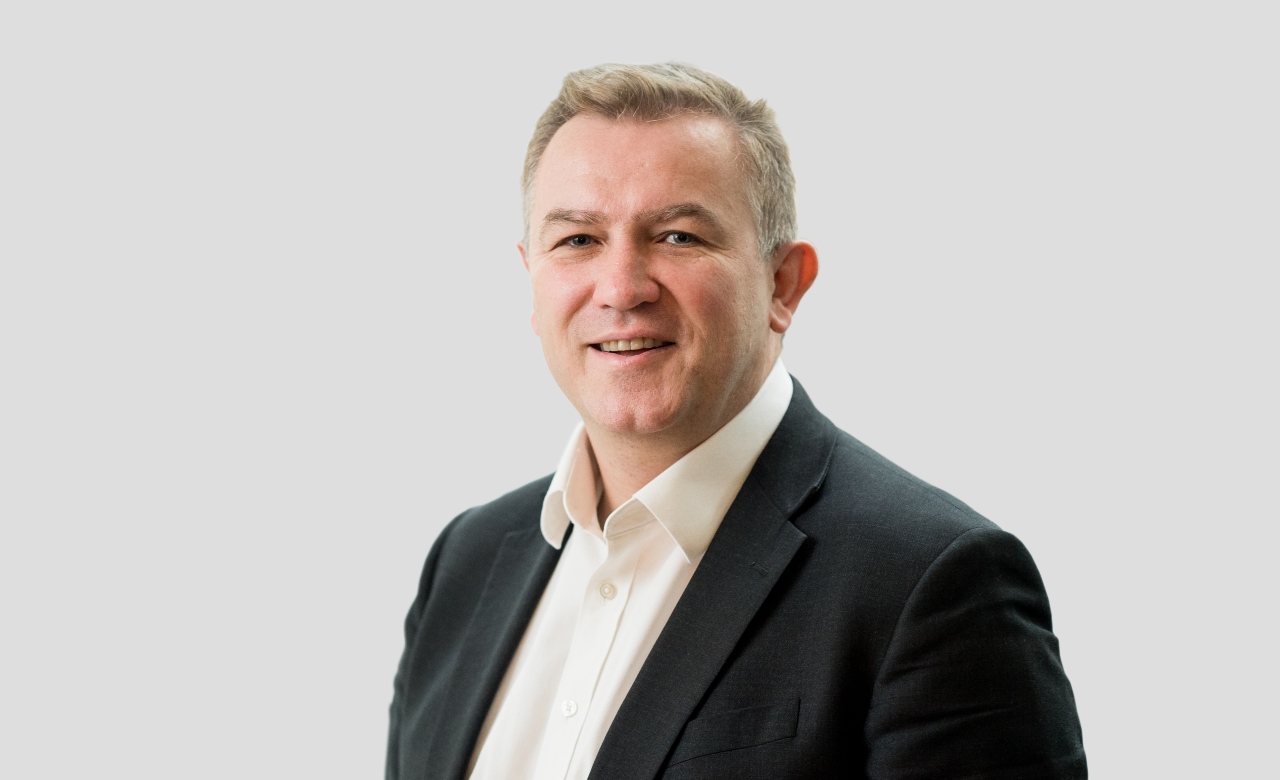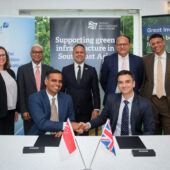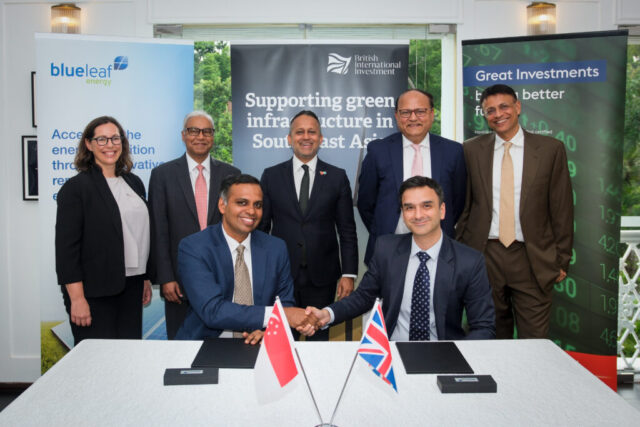If Tony Dalwood wasn’t running Gresham House, he may have become a sports coach. He told Impact Investor how a career in rugby helped him build a multi-billion business, and why investing in sustainability is a safe bet.

A former junior rugby international for England who also competed for Cambridge University, Tony Dalwood worked as a summer sports coach at his old school after he left university. Although his former headmaster offered him a job, he ended up pursuing a career in the City of London. Dalwood approached business in the same way he would prepare for a match.
“There is so much relevance [to] playing sport and building businesses,” Dalwood told Impact Investor. A former player for Saracens RFC and Rosslyn Park FC, Dalwood listed three factors that are key to succeeding both on the pitch and in the boardroom: “One will be communication, two would be self-confidence and three would be targets and ambition.”

In 2015, Dalwood successfully led a management buy-in for Gresham House, with a new strategy to turn one of Britain’s oldest companies, established in 1857, into an alternative asset management firm.
Under his leadership, Gresham House was transformed from a small property investment trust with no assets to an active manager with assets under management of more than £8bn (€9.3bn) specialising in alternative investments with a sustainable positive impact.
“We had macro support, in that asset allocation to alternatives was growing considerably,” Dalwood says, when asked what the key elements were behind the firm’s strong growth. “That was a big supporting wind.”
He says that after experiences working in private equity at Schroder Ventures and UBS, he had a vision, one that was supported by people around him who were willing to work with him day to day and back him with money.
“So you put all of those components together, and that was how we got going. And then we executed with good people, favourable strategy and money, and we kept making good returns.”
Sustainability
Gresham House specialises in investments in renewable energy generation (solar power, wind, and battery storage farms), forestry, infrastructure, and public and private equity investment strategies. It is the biggest forestry manager in the UK, and the seventh-largest in the world. It also manages the largest listed battery storage fund in Europe, Gresham House Energy Storage Fund (GRID).
The firm’s sustainable infrastructure strategy has six target sectors: decarbonisation, digital inclusion (facilitating remote health and remote working), resource efficiency, waste solutions, health & education, and regeneration including nature-based solutions. One of its portfolio companies is agritech company Fischer Farms, which has built the world’s biggest automated vertical farm in Norfolk, England.
During the first half of last year, Gresham House posted an 8% increase in adjusted operating profit to £14.2m. Assets under management grew 5% to £8.3bn during the same period.
“People often say, you do sustainability and ESG and impact investing, you’ve got to be giving up financial returns, investment returns,” says Dalwood. “It’s just not true. We don’t believe they are mutually exclusive. We’ve proven that in things like forestry, infrastructure, renewables, batteries.”
In order to accelerate the ESG sustainability impact agenda, “we need to attract more private capital,” Dalwood says. “We have those platforms available for private capital, but we just want to access them. The government capital just isn’t available. The government hasn’t got limitless amounts of money to put to work in any area, let alone in these areas.”
‘Education, education’
Gresham House spends a lot of time educating its clients about how to best achieve their sustainability goals, according to Dalwood.
“It’s a word we use all the time,” says Dalwood. “Forestry is an example. It took us three or four years to educate clients on the benefits of forestry, from financial returns through to why it helps with carbon sequestration. Of course, we know what the issues are around housing, and the good social benefits of housing. So that education process took years and continues to take years. We’re in a good place, but it’s a long process,” says Dalwood.
“In the old days, impact was, ‘Don’t worry about making any money, just make sure it’s good for society or good for the environment.’ We are into both impact, and making financial returns. And we measure the impact, whether it be employment, carbon emissions, energy efficiency, we’ve got a lot of data all over our business, for each asset class,” Dalwood says.
Growth plans
Fuelled by capital from its new US-based private equity owners, Searchlight, which bought Gresham House in a deal worth £470m last year, and no longer listed on the London Stock Exchange, Dalwood plans to grow the firm’s assets to more than £20bn by 2030, with profits generating a return on capital of 20%.
Dalwood aims to more than double Gresham House’s current assets by becoming a market leader in global battery energy storage, and being ranked inside the top 5 of the world’s biggest forest and natural capital managers. There will also be greater focus on investing in affordable housing, including shared ownership, retirement and build-to-rent properties, mainly in the UK.
“Natural capital is a big area of impact investing,” says Dalwood. “So we will be increasingly focused on natural capital, part of that is forestry, part of that is biodiversity, part of that will be carbon credits, food security, things like that.”
Dalwood says he is also keen to use Gresham House’s number two position in the venture capital trust market in the UK, “to have more innovation around sustainability themes.”
The fact Gresham House is a “very significant player in venture capital in the UK,” gives the firm access to a lot of deals. “And therefore I think we can be a driver of sustainable companies that are small, sustainable growth companies.”
ESG under scrutiny
ESG has come under scrutiny in recent years, with investors increasingly concerned about greenwashing. How does Dalwood see this development?
“There is a structural movement towards sustainability, it’s not going away, there won’t be less renewables in 10 years, they won’t be less recycling in 10 years, they won’t be less focus on energy efficiency, there’ll be more,” says Dalwood.
“We are in a growth area, and we will continue to be a growth area. What we do is not something that requires government support. It doesn’t require subsidies. And it makes a very attractive investment return for people, whether it be forestry, renewables, housing, infrastructure, private equity.”





